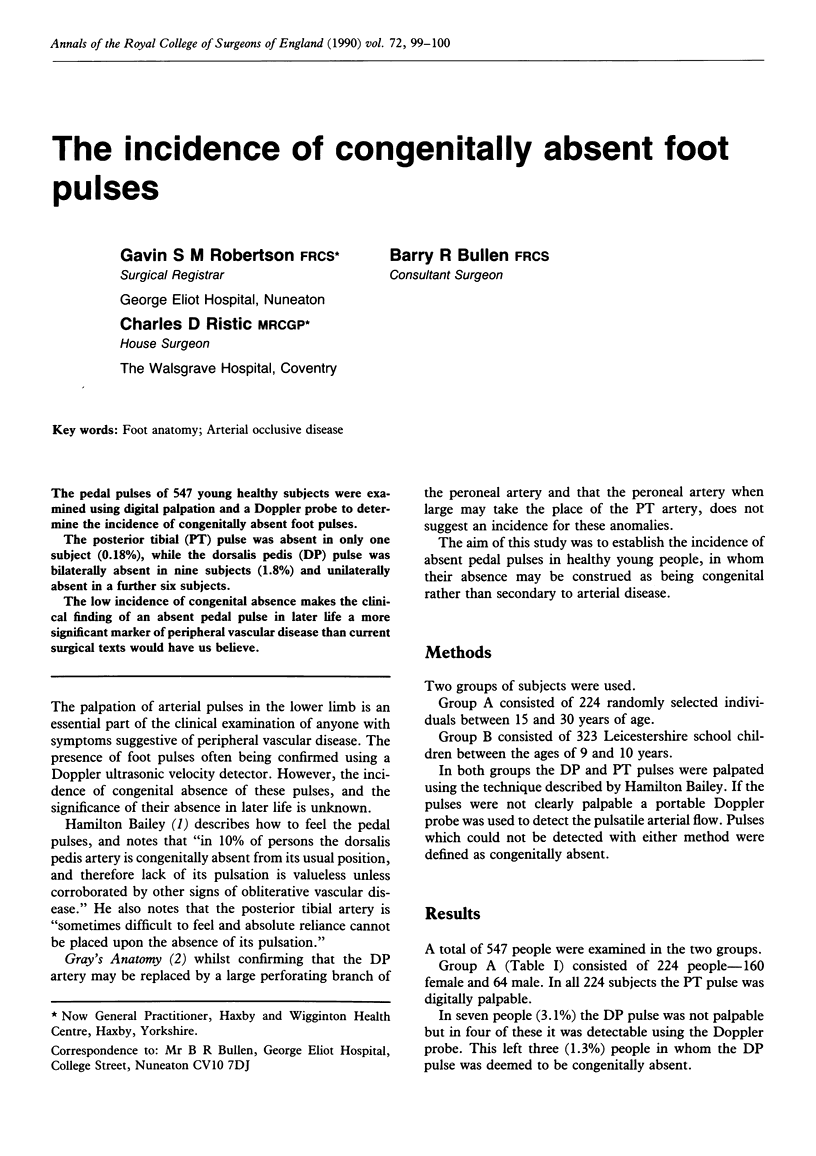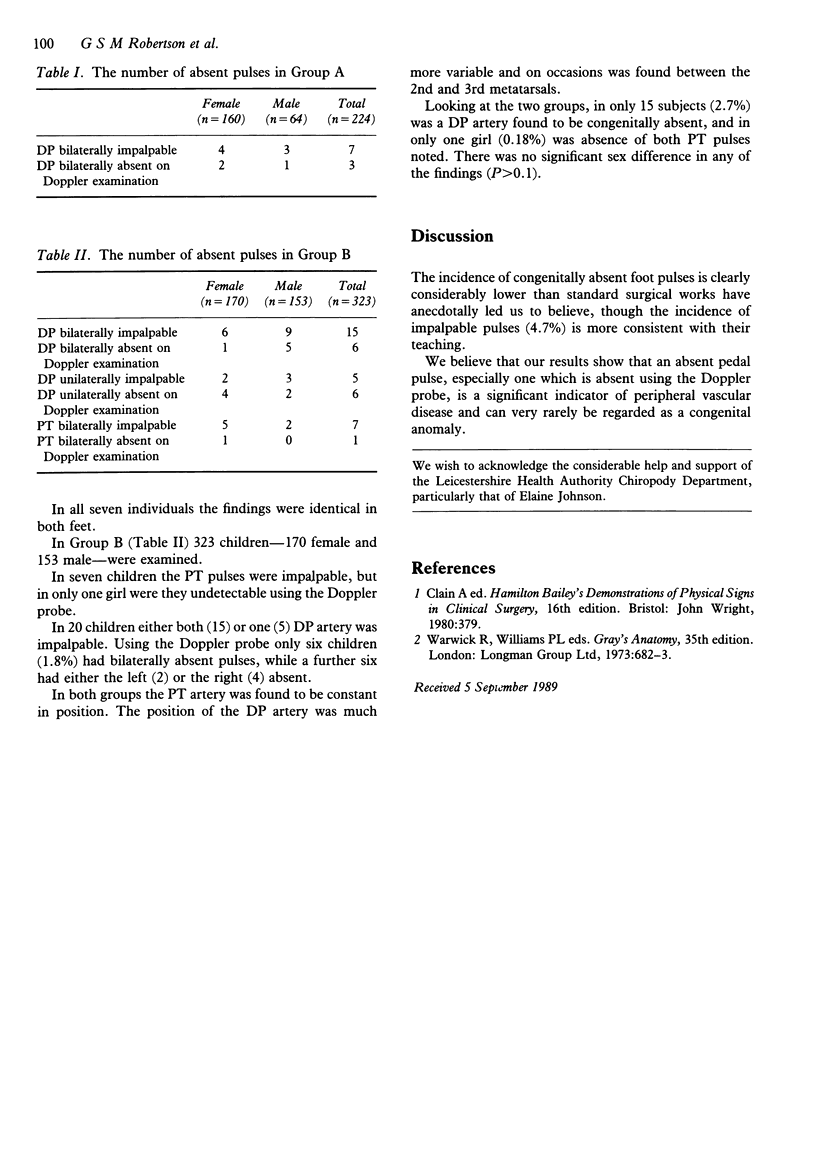Abstract
The pedal pulses of 547 young healthy subjects were examined using digital palpation and a Doppler probe to determine the incidence of congenitally absent foot pulses. The posterior tibial (PT) pulse was absent in only one subject (0.18%), while the dorsalis pedis (DP) pulse was bilaterally absent in nine subjects (1.8%) and unilaterally absent in a further six subjects. The low incidence of congenital absence makes the clinical finding of an absent pedal pulse in later life a more significant marker of peripheral vascular disease than current surgical texts would have us believe.
Full text
PDF



